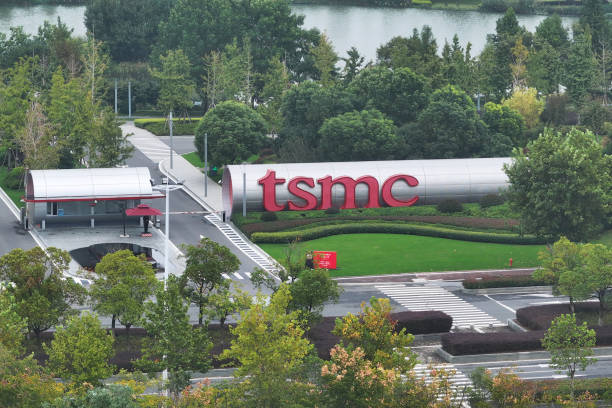
Intel is reportedly forming a joint venture with Taiwan Semiconductor Manufacturing Company (TSMC), signifying a strategic move meant to strengthen the manufacturing capabilities of its foundry division, and regain lost ground in the global semiconductor race.
The reported deal comes amidst significant pressure from the U.S. government to work out Intel’s long-standing production challenges and secure the nation’s semiconductor chip supply chain.
The U.S. government under the administration of President Trump has shown deep interest in this deal, viewing the joint venture as a pathway to strengthen domestic chip production and reduce over-reliance on foreign manufacturers.
Under the proposed arrangement, TSMC, the world’s leading contract chipmaker, would not own more than a 50% stake in Intel’s foundry division. While TSMC’s role would largely involve leveraging its cutting-edge fabrication technologies and running the operations of Intel’s foundry divisions, the joint venture deal will also incite further interest from major industry players.
Reports indicate that TSMC has approached prominent chipmakers such as Nvidia, AMD, and Broadcom, with the idea of securing stakes in the joint venture. The inclusion of these key players, each with considerable influence in the Artificial Intelligence (AI) and semiconductor industry, adds an interesting layer of strategic partnership that could boost operational efficiencies, and also add necessary capital and expertise into Intel’s turnaround efforts.
The Taiwanese chipmaker announced earlier in the year that they were planning to invest a fresh $100 billion in the U.S. and also build five additional chip-making facilities over the next few years.
Industry analysts view the potential collaboration with TSMC and the possible involvement of Nvidia, AMD, and Broadcom as a solution to several of Intel’s challenges. In 2024, the company recorded an unprecedented net loss of $18.8 billion, marking its first annual loss since 1986.
By joining forces with these semiconductor companies, Intel could benefit from enhanced technical know-how, improved manufacturing processes, and a more diversified operational approach. This, in turn, might accelerate the production of next-generation cutting-edge chips that are crucial for applications ranging from high-performance cloud computing to Artificial Intelligence (AI).
With ongoing geopolitical tensions and supply chain vulnerabilities, a robust U.S.-based semiconductor manufacturing ecosystem has become a national priority. The potential involvement of Nvidia, AMD, and Broadcom in the partnership could further strengthen this objective by aligning the interests of multiple industry leaders in support of American technological innovation.
The proposed joint venture between Intel and TSMC, with potential stakes from Nvidia, AMD, and Broadcom, represents a strategic effort to address Intel’s longstanding production issues and restore its competitive edge. Against the backdrop of a record-breaking loss in 2024, this initiative could mark a pivotal turn in Intel’s journey, one that might redefine the future of semiconductor manufacturing in the U.S.

